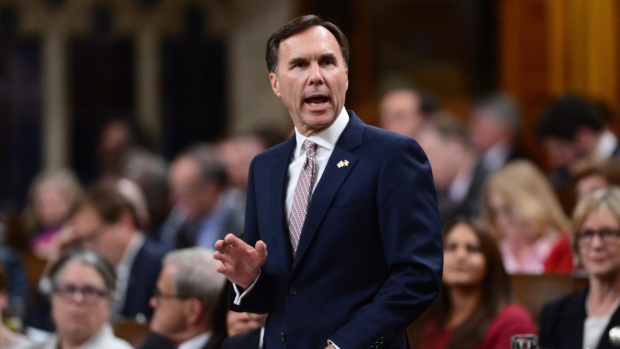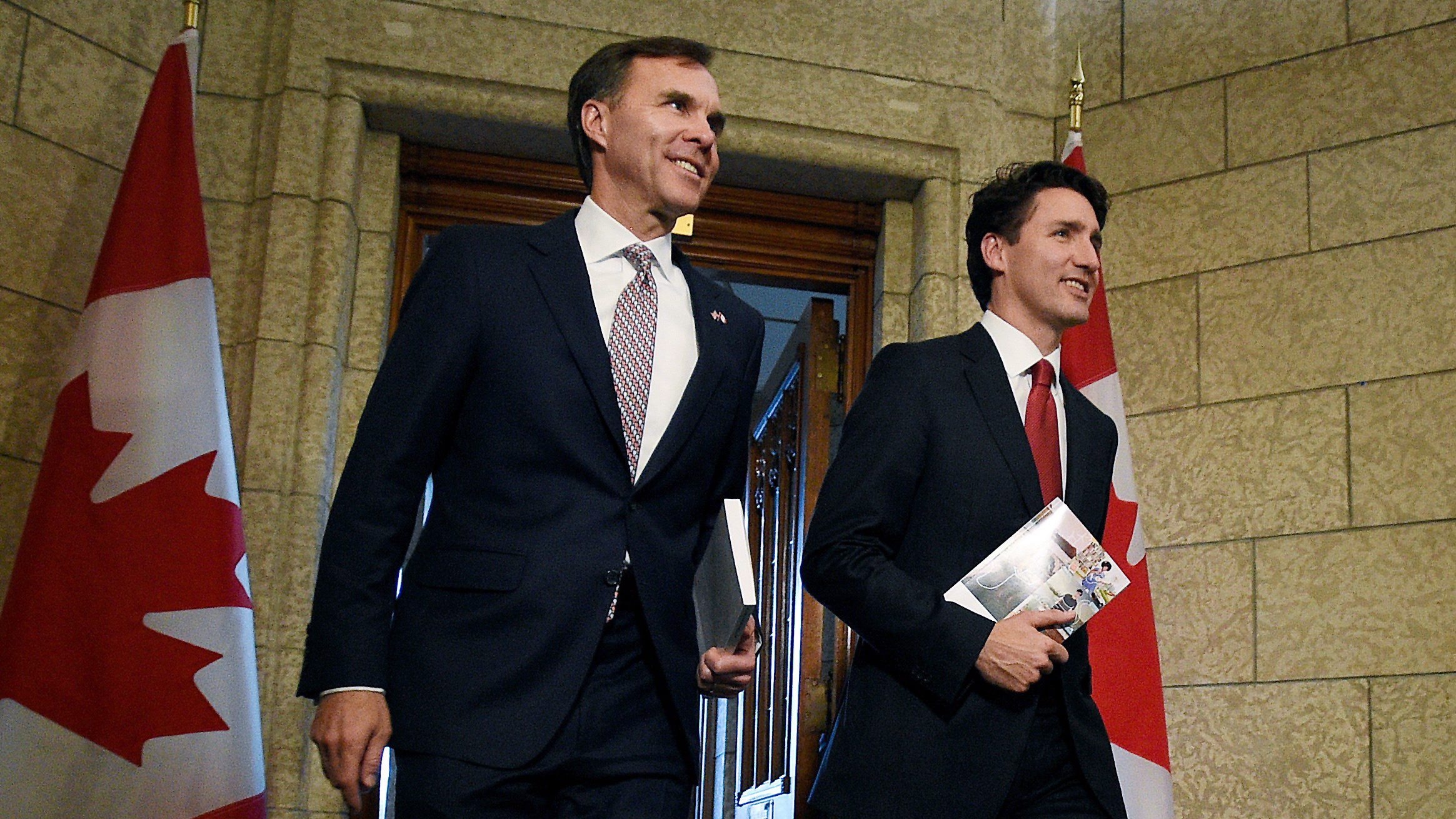Mar 23, 2017
‘The dog that didn’t bark’: Morneau holds off on feared tax changes

Bay Street might be breathing a sigh of relief that the Liberal government’s latest budget didn’t make any changes to the capital gains tax inclusion rate, but the federal finance minister is leaving the door open to reform down the line.
“I can say that we will continue to be focused on fairness,” Bill Morneau told BNN in an interview late Wednesday, when asked point blank if he could assure investors that tweaks to the tax treatment of capital gains and dividend income are off the table. “You’ve seen us say that we want to make sure that if two people are living side-by-side, and making the same income, that they pay the same level of taxes.”
WEIGH IN

Does the new federal budget make you more or less confident about the Canadian economy?
Anxiety was running high in the investment community leading up to the budget, with some of Canada’s most prominent business leaders warning the government against making any tax changes that would hinder the country’s competitiveness, particularly at a time when U.S. President Donald Trump is vowing substantial tax cuts.
“We are trying to rebuild our economy and I don’t think you can rebuild your economy by chasing people away who can deliver jobs and build corporations,” Jarislowsky Fraser Founder Stephen Jarislowsky said in a recent interview with BNN.
“Tax changes really were the dog that didn’t bark [in the budget],” said TD Senior Economist Brian DePratto in an interview with BNN. “They’re taking a cautious approach for better or worse.”
One of the tax levers that was left untouched Wednesday was the capital gains tax on home sales that aren’t covered by the principal residence exemption. That issue came to the fore earlier this week after Ontario Finance Minister Charles Sousa sent his federal counterpart a letter saying a change to that tax rate would help improve housing affordability by targeting home flippers.
“When we talk about the housing prices in Toronto and Vancouver, we’re going to stay focused on making sure those markets are stable,” Morneau said Wednesday. “We’re working with the cities to make sure that we take action where action is required – but that we don’t take actions that are going to deal with challenges in Toronto and Vancouver but cause unanticipated consequences in Moncton or Winnipeg.”

